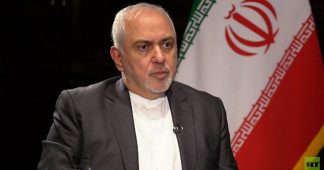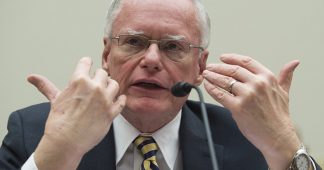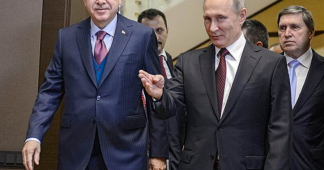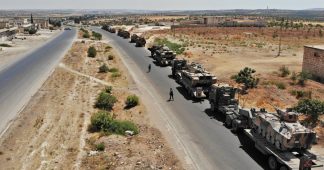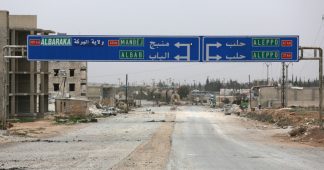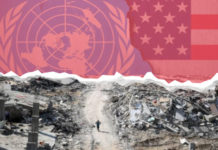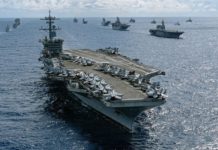By Mustafa Ozbey
02/18/2020
A country’s foreign policy is a complex synthesis, matured and distilled with the accumulation of experience over many years. Therefore, if an extraordinary change in the global balance of power does not occur, there will likewise be no radical change in a country’s foreign policy. Because Turkey was unable to fully grasp the global paradigm changes of the post-Cold War era, it did not fully predict how best to sustain its national interests.
Turkey chose to stay blindly loyal to the Western/NATO axis instead of developing more pragmatic and bilateral relations. Naturally, the West and NATO have exploited this relationship, which, until now, cost them nothing in return.
Russia, which was deployed permanently to Syria and to the Mediterranean Sea in 2015, in the course of the Syrian Civil War has become an important geo-strategic option for Turkey, providing an opportunity for clever and balanced foreign policy. Our relations with Russia have granted a strategic perspective and a depth even beyond Syria. The West and NATO, which have long seen Turkey as an “ever loyal” ally, have made efforts to disrupt this relationship, but without any major impact. The position that brought Turkish-Russian relations to the international level was their participation in the “Belt and Road Initiative”. Turkish-Russian cooperation recently came to a point where they were able to work together to mediate a ceasefire in the Libyan Civil War and this cooperation even carried over into the Mediterranean. Problems that were encountered in that field were successfully resolved through high level negotiations. The United States, on the other hand, could only observe the success of the process from afar.
How did this process, which could be considered Turkey’s most successful regional cooperation initiative in the post-Cold War era, reach the point of collapse within two months? It is pointless to try to establish blame one way or the other: both the parties are following their own national interests at the moment. However in the short term, the worst impact will be felt in Syria. Russia has now entered a crisis period with one of its most critical allies after making the mistake of trying to “teach a lesson” to Turkey. The Syrian crisis cannot be solved without Turkey, yet this factor is being ignored. The US has now joined the table and begun to manipulate these differences. Turkey has opened the door to a situation which could make the disaster even more irreversible and could lead to issues with the Kurdish Corridor by inviting more global actors with various interests to the field. The Syrian crisis was very difficult to resolve, and now it may be impossible.
No one should act as if they have achieved some heroic victory, making a fool of themselves and their nation. The mess in Syria has now become permanent. This mess has already swallowed and consumed Turkey, and now the country is in too deep to escape. Moving foreign policy away from state traditions toward personal and emotional answers while basing decisions on sectarianism instead of historical awareness, intelligence, provisions and national interests, has led Turkey to this point. In Idlib, we created an irreversible problem that has become a question of survival. While military casualties may be limited for the time being, the use of our country’s limited resources is a growing national security issue, and should be taken seriously. The Eastern Mediterranean and the Island of Cyprus are now more brittle than ever.
While the West and NATO’s imperialist plans are still fresh in our memories, falling into the same trap once more would be suicide. What happened with Russia has created a deep crisis of mistrust, however, it is still possible for the parties involved to turn this into an opportunity, although it will have come at a very high cost. The future of Turkish-Russian relations will also deeply affect future possibilities for the Belt and Road Initiative. This is not a time for our leaders to show heroism, it is a time for them to show their skill and wisdom.
* Mustafa Ozbey: Retired Rear Admiral of the Turkish Naval Forces. Mustafa Ozbey started his career in 1965 as a naval officer following his graduation from the Turkish Naval Academy. Ozbey actively participated in the Cyprus Peace Operation in 1974 and the Kardak Crisis. In 1996, Ozbey served in various warships as a department head, executive and commanding officer. He has also served as a destroyer division commodore and flag officer for various combatant squadrons. Most recently, he was a chief of staff at Turkish Fleet HQ as rear admiral. Ozbey has participated in advanced training programs both domestically and abroad, and worked in NATO Headquarters in Brussels between 1984 and 1987. He retired in 2001 with the rank of Rear Admiral at his own request.
Published at https://uwidata.com/8079-turkeys-irreversible-and-existential-problem-in-idlib/
